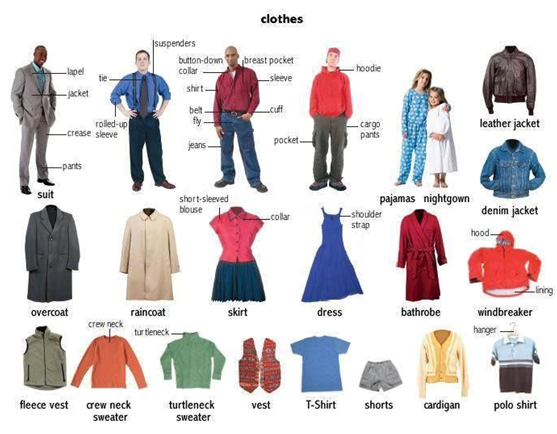Lesson 1 Escape
脫逃
一、詞匯部分
1)prisoner /ˈprɪz.ən.ɚ/ n. 囚犯
擴(kuò)展:prison/send someone to prison/throw someone to prison
擴(kuò)展:behind bars
例句: I hear Mike's uncle is behind bars again
2)bush/bʊʃ/ n. 灌木叢
搭配:beat around the bush
3)rapidly/ˈræp.ɪd/ adv. 迅速地
4)uniform/ˈjuː.nə.fɔːrm/ n. 制服
助記:uni-單一+ form 形式;
5)rifle/ˈraɪ.fəl/ n. 來福槍,步槍
6)shoulder/ˈʃoʊl.dɚ/ n. 肩
擴(kuò)展:shoulder one’s responsibility 肩負(fù)責(zé)任
擴(kuò)展:give someone a cold shoulder 對(duì)某人很冷漠
7)march/mɑːrtʃ/ v. 行進(jìn)
擴(kuò)展:March 和march聯(lián)系
8)boldly/boʊld/ adv. 大膽地
1)a bold move
The newspapers described her resignation as a bold move.
2)a bold step
The following year he made a bold step to expand his business.
3)a bold attempt
It was a bold attempt to win back public confidence.
4)a bold statement/assertion/claim
In a surprisingly bold statement, the couple said they had no intention ofmarrying.
5)a bold decision
Deciding to emigrate is a bold decision for anyone to make.
6)a bold experiment
Making a film from the book was a bold experiment, and it worked.
9)blaze/bleɪz/ v. 閃耀
10)salute/səˈluːt/ v. 行禮
11)elderly/ˈel.dɚ.li/ adj. 上了年紀(jì)的
12)grey/ɡreɪ/ adj. 灰白的
13)sharp/ʃɑːrp/ adj. 猛烈的
擴(kuò)展:Sharp 時(shí)髦的;sharp整;Let’s meet at 10 o’clock sharp.
14)blow/bloʊ/ n. 打擊
文章講解
When he had killed the guard, the prisoner of war quickly dragged him into the bushes. Working rapidly in the darkness, he soon changed into the dead man's clothes. Now, dressed in a blue uniform and with a rifle over his shoulder, the prisoner marched boldly up and down in front of the camp. He could hear shouting in the camp itself. Lights were blazing and men were running here and there: they had just discovered that a prisoner had escaped. At that moment, a large black car with four officers inside it, stopped at the camp gates. The officers got out and the prisoner stood to attention and saluted as they passed. When they had gone, the driver of the car came towards him. The man obviously wanted to talk. He was rather elderly with grey hair and clear blue eyes. The prisoner felt sorry for him, but there was nothing else he could do. As the man came near, the prisoner knocked him to the ground with a sharp blow. Then, jumping into the car, he drove off as quickly as he could.
文章精講:
1.When he had killed the guard, the prisoner of war quickly dragged him into the bushes. Working rapidly in the darkness, he soon changed into the dead man's clothes.
1)知識(shí)點(diǎn)1:
過去完成時(shí):had done
No sooner…than…./ hardly …..when ….一….就
例:Hardly had I got to the bus stop when the bus started.
例:No sooner had I got to the bus stop than the bus started.
No sooner….than…..
例:He had no sooner returned than he bought a house.
他一回來就買了一套房子。
如果no sooner 位于句首,主句要用倒裝結(jié)構(gòu)。
例:No sooner had he arrived than he went away again.
他剛到就又走了。
例:No sooner had the game started than it began to rain heavily.
運(yùn)動(dòng)會(huì)剛開始,天就下起了大雨。
hardly…when...
例:He had hardly finished the article when the light went out.
他剛寫完文,燈就熄了。
例:He had hardly had time to settle down when he sold the house.
他還未安頓下來,就賣掉了那所房子。
如果把hardly放于句首,主句要用倒裝結(jié)構(gòu)即謂語動(dòng)詞要提前。
例:Hardly had I finished eating when he came in.
我剛吃完他就進(jìn)來了。
例:Hardly had she gone out when a student came to visit her.
她還沒走出家門,就有一個(gè)學(xué)生來看望她。
虛擬語氣中也會(huì)出現(xiàn)過去完成時(shí)-對(duì)過去的虛擬:If had done, would/could/should/might + have done
(專四考題)If only the patient __a different treatment instead of using the antibiotics, he might still be alive now.
A. had received B. received
C. should receive D. were receiving
2)知識(shí)點(diǎn)2:非謂語動(dòng)詞作狀語
具體形式:Doing something,主句。
第一:doing something 表示主動(dòng);
第二:doing something 的邏輯主語是后面句子的主語。
Work 用法小總結(jié):
get off work
It's not gonna work
work out
work my butt off
He's so worked up他很生氣
on my way to work
Clothes Vocabulary
課后題-下課講
1._______ regular training in nursing, she could hardly cope with the work at first.1994
A. Not received B. Since receiving
C. Having received D. Not having received
2._________ their luggage , the group of tourists hurried to the airport.1991
A. Packed B. After packed C. Finished packing D. Having packed











